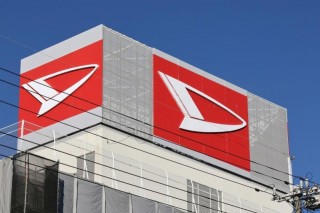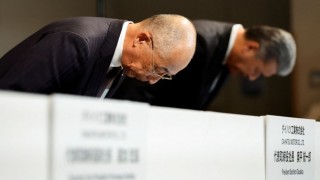Loading
Search
▼ Daihatsu Suspends Production In Japan After Safety Test Scandal
- Category:Other
Toyota subsidiary has admitted falsifying data on some models for more than 30 years
Production was suspended at the last operating domestic factory of Japanese automaker Daihatsu on Tuesday, as the Toyota subsidiary grapples with a safety testing scandal affecting 64 models going back more than three decades.
Issues with falsified crash tests first came to light in April, when the firm admitted it had manipulated data on four models manufactured in Thailand and Malaysia from 2022 until this year.
The company has since acknowledged that similar issues have occurred across almost its entire production process, with an internal investigation discovering falsified data dating back to 1989.
“We betrayed the trust of our customers,” said Daihatsu CEO Soichiro Okudaira at a Tokyo press conference last week. “All the blame is on the management.”
On 20 December the company announced it would halt shipments of all models while further investigations and safety checks are carried out. Initial investigations have found that the shortening of vehicle development time was likely the main cause of corners being cut on safety checks.
Head of the investigating panel Makoto Kaiami said, “There was tremendous pressure on employees as altering sales schedules due to test failures was widely seen as unacceptable.”
Daihatsu identified doors that can become difficult to open from the outside after an accident as the major safety issue, though there have been no reports of related injuries. Included in the 64 models are vehicles manufactured by Daihatsu under contract for Toyota, Mazda and Subaru.
Production is currently set to be suspended at its factories across Japan until at least the end of January, affecting 9,000 workers and more than 8,000 suppliers. Daihatsu produced about 870,000 vehicles in Japan last year, a supply chain worth approximately 2.2tn yen (US$15bn).
Daihatsu, which was founded in Osaka in 1907 and taken over by Toyota in 1967, is currently negotiating with unions and suppliers over compensation while production remains suspended.
Although Japanese cars are known for their safety and reliability, the industry has been hit by numerous scandals over the years.
In 2004, Mitsubishi Motors finally confessed to covering up defects in its vehicles dating back to 1977, after partially admitting to related problems four years earlier. Similar issues then emerged at its subsidiary Fuso Truck and Bus in what became one of Japan’s worst corporate scandals.
Nissan, Suzuki, Mazda, Subaru and Yamaha Motors were all embroiled in inspections and data-tampering scandals between 2017 and 2018.
Daihatsu’s parent company Toyota paid a record $1.2bn settlement to the US Justice Department in 2014 over a series of claims about accelerator pedals and subsequent accidents.
No mechanical fault was ever discovered despite numerous investigations and driver error remains the most likely explanation for the crashes that occurred.
- December 27, 2023
- Comment (0)
- Trackback(0)



